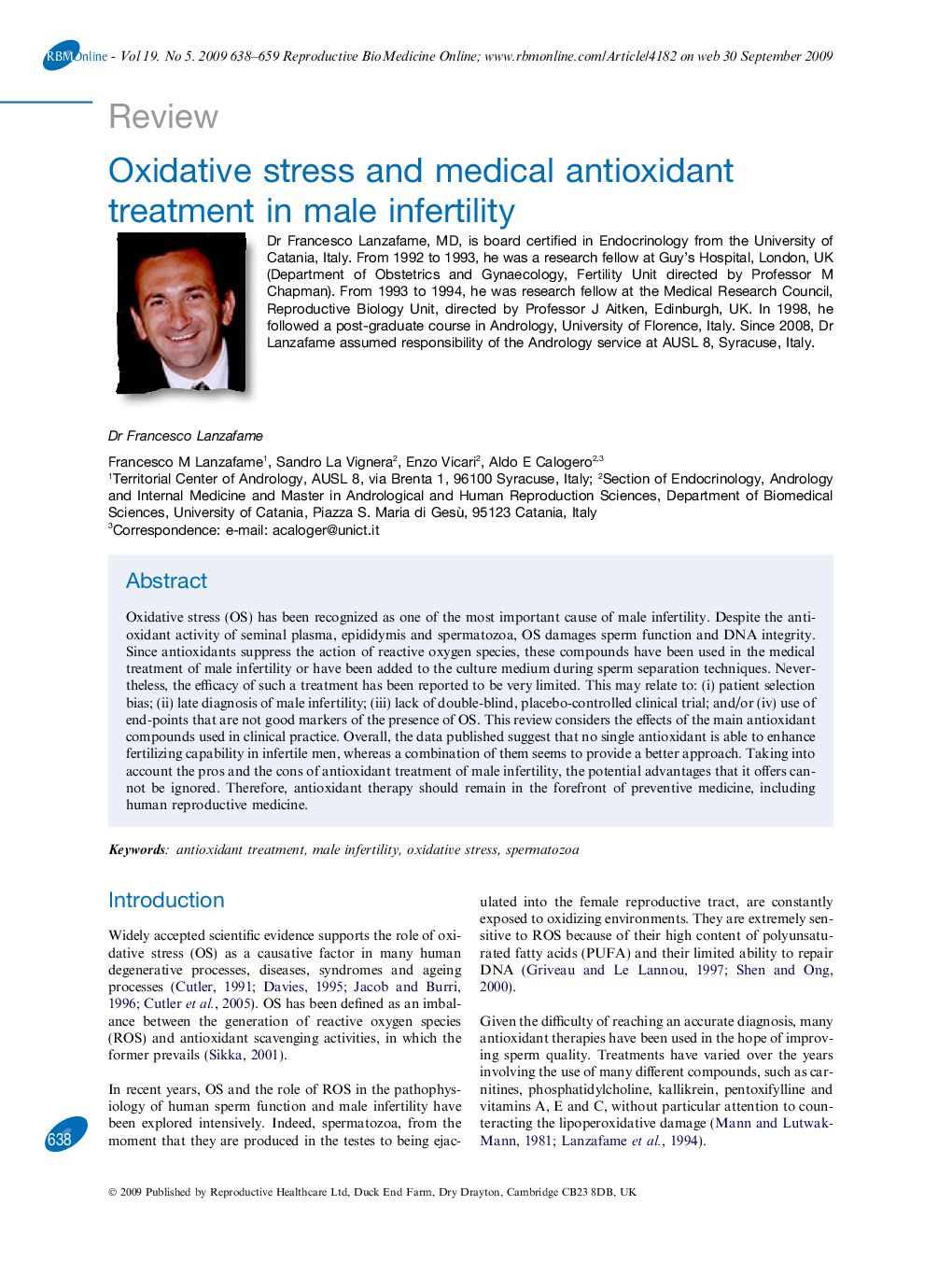| Article ID | Journal | Published Year | Pages | File Type |
|---|---|---|---|---|
| 3971970 | Reproductive BioMedicine Online | 2009 | 22 Pages |
Oxidative stress (OS) has been recognized as one of the most important cause of male infertility. Despite the antioxidant activity of seminal plasma, epididymis and spermatozoa, OS damages sperm function and DNA integrity. Since antioxidants suppress the action of reactive oxygen species, these compounds have been used in the medical treatment of male infertility or have been added to the culture medium during sperm separation techniques. Nevertheless, the efficacy of such a treatment has been reported to be very limited. This may relate to: (i) patient selection bias; (ii) late diagnosis of male infertility; (iii) lack of double-blind, placebo-controlled clinical trial; and/or (iv) use of end-points that are not good markers of the presence of OS. This review considers the effects of the main antioxidant compounds used in clinical practice. Overall, the data published suggest that no single antioxidant is able to enhance fertilizing capability in infertile men, whereas a combination of them seems to provide a better approach. Taking into account the pros and the cons of antioxidant treatment of male infertility, the potential advantages that it offers cannot be ignored. Therefore, antioxidant therapy should remain in the forefront of preventive medicine, including human reproductive medicine.
